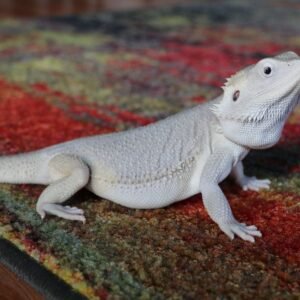bearded dragon poop
Analyzing Bearded Dragon Poop: What’s Normal vs. Abnormal?
bearded dragon poop Understanding the characteristics of a healthy bearded dragon’s feces is vital for maintaining their overall health and ensuring their digestive system is functioning properly. Typically, normal bearded dragon poop appears firm and well-formed, with a consistency that is not overly runny or excessively hard. The color can vary but is usually brown or dark brown. The presence of white urates—solid waste—can also be observed, which is a normal component of a bearded dragon’s excretion.
Frequency of bowel movements is another important aspect to consider. Healthy bearded dragons may defecate anywhere from once a day to once every few days, depending on their age, diet, and overall health. Young bearded dragons might poop more frequently due to a higher intake of food compared to adults. Monitoring this frequency is essential for identifying any potential problems with their digestive health.
Conversely, abnormal poop can be indicative of underlying health issues or dietary deficiencies. Abnormalities such as diarrhea, which presents as watery and often lacks the typical solid form, may signal an infection, parasites, or dietary imbalances. Green or particularly foul-smelling poop can indicate a problem with the bearded dragon’s diet or possible digestive issues, warranting immediate attention. Additionally, the presence of undigested food in feces could suggest that the digestive system is not processing nutrients effectively.
Owners should not overlook any noticeable changes in their bearded dragon’s droppings, as these variations can provide critical insights into the animal’s health. Regularly monitoring the color, consistency, and frequency of bowel movements serves as a crucial aspect of bearded dragon care, enabling owners to detect and address any potential health concerns promptly.
Dietary Impact on Bearded Dragon Poop
bearded dragon poop ,The diet of a bearded dragon plays a crucial role in the quality and characteristics of its poop. A well-balanced diet should primarily consist of live insects, leafy greens, and fruits, each contributing differently to fecal consistency and overall health. Live insects, such as crickets and mealworms, provide protein essential for growth, while leafy greens like collard greens and dandelion leaves offer necessary vitamins and minerals. These greens should be offered regularly to ensure the bearded dragon receives the nutrients required for healthy digestion.
The inclusion of fruits in moderation, such as strawberries and melon, can also enhance the diet, but it is important to be cautious due to their high sugar content. Fruits should be introduced sparingly, treating them as occasional snacks rather than staples. A diet too high in sugars or low in fiber may lead to improperly formed droppings and possible health issues for the bearded dragon.
Overfeeding is another vital concern. It can cause obesity and lead to abnormal bowel movements. When a bearded dragon is fed excess food regularly, its digestive system can become overwhelmed, resulting in loose stools or impaction. Additionally, dehydration can significantly impact fecal quality. A bearded dragon that is not sufficiently hydrated may produce hard, dry poop, which can make elimination difficult and uncomfortable.
To maintain optimal digestion and ensure regular, healthy bowel movements, owners should establish a feeding schedule that incorporates a variety of foods. Offering a moist environment alongside regular hydration can also aid digestion. Adjustments to diet based on age, size, and specific needs of the bearded dragon will better support health and the consistency of their poop. Awareness of these dietary factors can help ensure that the pet remains healthy and its waste remains regular.
Showing the single result
-
Bearded Dragons for Sale
fancy bearded dragon
Original price was: $269.00.$229.00Current price is: $229.00. Add to basket

